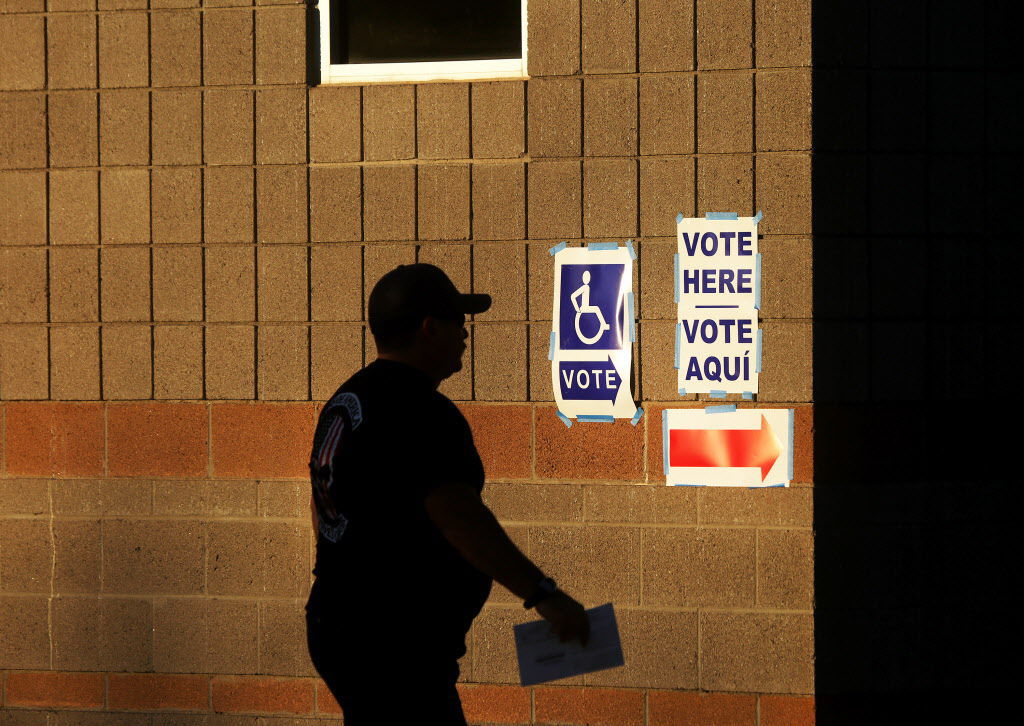PHOENIX — Ruling it doesn’t violate the state constitution, a judge declined Wednesday to block the voter-approved law that requires Arizona employers to pay their workers at least $10 an hour beginning Jan. 1.
In a setback for business interests, Maricopa County Superior Court Judge Daniel Kiley rebuffed their arguments that Proposition 206 legally should have been split into two separate measures, one to raise the minimum hourly wage in steps — it will reach $12 by 2020 — and the other to require that employers give workers at least three days of paid personal leave.
The judge said the requirement for separate ballot measures applies only to constitutional provisions. By contrast, Proposition 206 simply amends statute. Even if that were not the case, the judge said, raising wages and providing paid time off are sufficiently interrelated issues.
Kiley also said there was no merit to the claim the initiative violates a constitutional provision requiring any voter-approved measure to have a dedicated source of revenues to cover any costs to the state.
There is no direct hit to the state budget, as its employees are exempt from the initiative.
Officials of the Arizona Health Care Containment System, the state’s Medicaid program, say the agency is required by federal law to maintain a network of private contractors for nursing home and in-home care.
Several such contractors who now pay workers less than $10 an hour have said they may be forced out of business without additional state dollars. AHCCCS officials say the only way to prevent that is to raise reimbursement rates.
The judge countered that the initiative doesn’t force AHCCCS to increase pay to contractors. He also pointed out that Arizona law and the contracts with Medicaid specify the state does not have to spend money it doesn’t have.
Kiley acknowledged that allowing the new minimum wage to take effect might cause some hardship on the state and the contractors who may have to lay off workers.
But he said it would be even more unfair to workers at the bottom of the pay scale — those who can now be paid as little as $8.05 an hour — to block even temporarily the higher wages from kicking in as scheduled.
“Granting the plaintiffs’ requested relief would delay the pay raise promised to low-wage employees, many of whom struggle on a daily basis to make ends meet,” the judge wrote. “In the court’s view, delaying the promised pay raise would impose a significant hardship on low-wage workers that could not be fully remedied by the payment of back wages at some point in the future if the preliminary injunction were later vacated.”
Kiley’s ruling is unlikely to be the last word.
Business interests that filed suit against the measure, led by the Arizona Chamber of Commerce and Industry and the owners of the Valle Luna restaurant chain, still can ask the Arizona Supreme Court to intercede until the end of the year.
Chamber spokesman Garrick Taylor said options are being discussed with attorneys. Foes also could still challenge the law at a full-blown trial, which would not likely occur for months.
“We still believe in the merits of the arguments we presented,” Taylor said Wednesday. “We are troubled by the constitutionality of Proposition 206.”
Tomas Robles, who chairs the group that campaigned for the initiative, said he was pleased with Wednesday’s ruling but dismayed by the prospect of months of new legal battles.
“I’m very disgusted and ashamed of the Arizona Chamber and the Valle Luna restaurants and anyone who claims to care about Arizona families,” he said. “They are trying to ruin a lot of the hope that a lot of families are going to have for next year, right around the holidays.”
Robles also said of the legal challenge: “It’s kind of funny how businesses don’t have money to pay workers supposedly, from the chamber’s point of view, but they have hundreds of thousands of dollars for legal fees.”
There is much more at stake than the amount being spent on lawyers.
Robles said during the campaign that about 770,000 Arizona workers are currently being paid less than $10 an hour.
Even assuming they make a current wage of $9, that means at least a dollar an hour raise. Multiply that by the number of hours a year for a full-time worker and the difference comes out to more than $1.4 billion.
Robles acknowledged the higher costs for businesses. “But they’re also going to reap the reward of people who will be able to spend that money at their businesses, like we’ve seen at other places” where the minimum wage has been hiked, he said.
Kiley’s ruling also is a victory for Attorney General Mark Brnovich, who sent Assistant Attorney General Charles Grubbe to court to defend the voter-approved law.
Brnovich said Wednesday if the case goes on he will “continue to do my job which is to fight for the will of Arizona voters and uphold the rule of law.’’
That has put him somewhat at odds with fellow Republican Gov. Doug Ducey.
Ducey opposed the initiative and his agencies like AHCCCS provided evidence used by lawyers to challenge the initiative. Ducey’s only comment on Wednesday’s ruling, through press aide Daniel Scarpinato, was that the state “will continue to follow the law.”
Voters approved the minimum-wage increase by a 58-42 percent margin in the Nov. 8 election.





